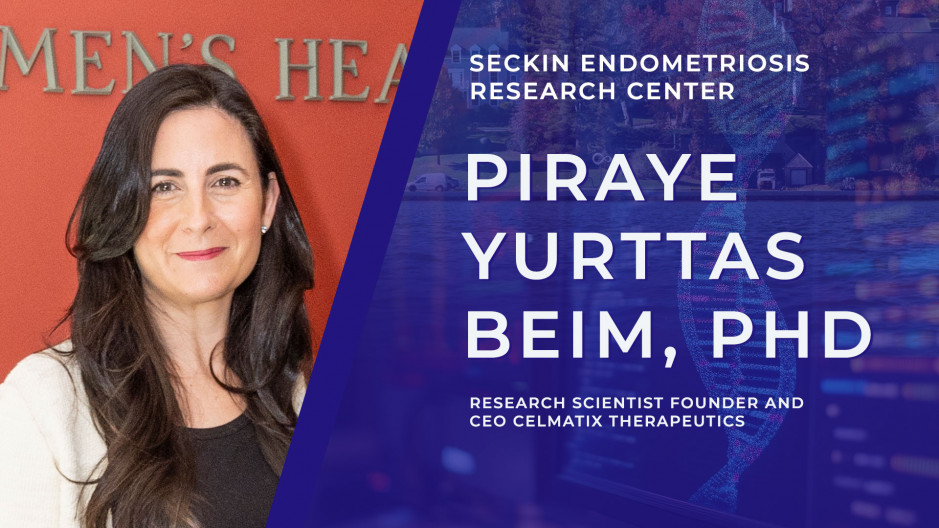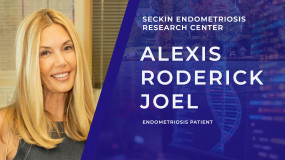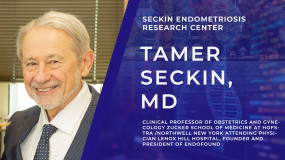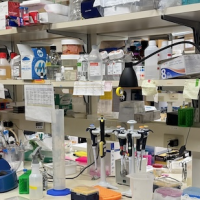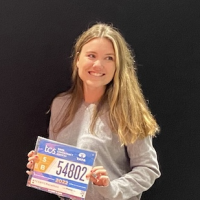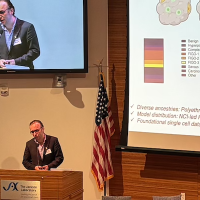PRESS CONFERENCE
Announcing the Seckin Endometriosis Research Center for
Women’s Health at Cold Spring Harbor Laboratory (CSHL)
Thursday, May 1, 2025 10:00am
Cold Spring Harbor Laboratory
Piraye Yurttas Beim, PHD
Hi everyone.
I echo everything that has already been said, and I’ll just share a few words from the perspective of the Foundation.
I was truly honored to recently assume the role of Chairman of the Endometriosis Foundation of America. It’s an incredible legacy. The founders—Padma Lakshmi and Dr. Seckin—laid the groundwork, and this is an exciting time for the Foundation. I believe this event represents the capstone in the Foundation’s ongoing transition.
This disease was once virtually unknown, poorly characterized, and understood only through clinical experience. Women were in pain, many struggled with infertility, and physicians did their best to make sense of the condition. But it was confusing: some women experienced tremendous pain with few lesions visible surgically, while others had many lesions with less pain, or infertility with no clear correlation.
Physicians worked diligently through that “clinical era” of understanding. But as genetic technologies, big data, and AI have advanced, we’ve seen breakthroughs in other conditions—especially cancer. We now detect cancers earlier, understand their inheritance in families, differentiate one type from another, and ultimately develop not only better diagnostics but curative treatments. Sadly, most women’s health conditions have lagged behind in this scientific revolution. To move forward, we must understand diseases like endometriosis at the molecular and cellular level. That’s the only way to bring women’s health into the modern era.
I knew I had to step up. As a scientist and biotechnology executive, I’ve experienced firsthand the power of translational research. I first came to Cold Spring Harbor as a graduate student, attending symposia and benefiting from its legacy. When Dr. Seckin told me there was an opportunity to combine the Foundation’s extraordinary biorepository of surgical specimens—generously donated by patients—with the unmatched genomic and molecular expertise at Cold Spring Harbor Laboratory, it was clear: we had to make this happen.
And now, with the creation of the first dedicated center for endometriosis research, history is being made.
We also knew the center had to bear Dr. Seckin’s name. He may be too humble to ask for that, but there is no question: if one person has ensured that the world understands this disease and has paved the way for this milestone, it is Dr. Seckin. On behalf of the Foundation, thank you, Dr. Seckin, for your vision and legacy.
Like many of us here, I stand at this podium not only as a scientist but also as one of Dr. Seckin’s patients. My journey mirrors that of so many women. For years, we thought we were simply more sensitive to pain—that what we were experiencing was “normal.” But we’ve since learned that we are not weak; we are warriors. Many women with endometriosis proudly call themselves “endo warriors” because we’ve had to endure medical gaslighting, dismissal of our pain, and years of functioning under levels of pain comparable to labor contractions.
We’ve been treated with hormone disruption, painkillers, and temporary relief—but never a cure.
I recently had the privilege of meeting Alexis Joel. Before she speaks, I want to say this: endometriosis affects an estimated one in ten women worldwide, yet we can count on our fingers and toes the number of public figures who have shared their stories. That’s why it means so much when someone like Alexis uses her platform. We need women to feel empowered to say: I’m in pain. It’s not okay. Some days I can’t function. Until more voices come forward, this disease will remain in the shadows—underfunded and misunderstood.
Less than 9% of U.S. government funding goes to women’s health conditions, and only a small fraction of that supports endometriosis. That’s why our $20 million initiative is so significant for the field—though it is just the beginning when measured against the billions lost in productivity and wellbeing.
So Alexis, thank you. I know you and your family could choose to support many causes, but your decision to pay it forward for the women living with this disease and to help raise awareness for our Foundation and our new research center means the world to us.
Alexis, would you like to come up and share a few words?
Thank you.



